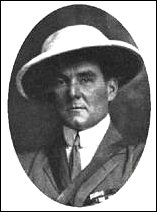The March 7 issue of the New Yorker has a small article by Tad Friend on two innovations in the pen industry (alas, not online - see pp.32-33). The one that caught my eye was on the Canadian novelist Margaret Atwood, and her seemingly new take on the important market of author signings:
Then, Margaret Atwood, the Canadian novelist, announced that she had invented a device that allows an author to remain at home while autographing books in faraway bookstores - a solution to the prennial problem of highbrow writers being mobbed by screaming fans. Her contraption is a kind of two-way video hookup with a robotic pen arm. An author can sit at the kitchen table in her pajamas and make a personalized inscription on an electronic screen, while, in a distant mall, the robotic pen replicates the message on the title page of a fan's propped-up book. Atwood came up with the idea last spring, during an expensive and exhausting three-week publicity tour for her novel "Oryx and Crake." She says that the invention, which will be manufactured by a new company called Unotchit ("You no touch it"), will increase both the safety of the writer-reader interaction - "My germs and my bio-material won't be in the same place as your germs and your bio-material" - and its profundity: "I'm more likely to be gazing deeply into your eyes as I'm signing on the screen."
Atwood seems to have forgotten that for many readers attending author signings, it's not just the "experience" of communicating with the author that is attractive, it is also getting a personalized book that has been touched - meaning signed - by the author. Interpersonal connection requires a bit of proximity and non-verbal communication: businesses invested heavily in video teleconferencing as an economical means to enhance corporate communication, but found that it still pays to have staff go out and meet accounts, shake hands, chat, and make sales calls. That human touch, especially with physical objects, imparts what anthropologists call "contagious magic," whereby the act of touching an object imparts some "being" or "essence" of an individual in that artifact. Much of the antiques trade is based this concept: the provenance of an antique showing it was owned and used by George Washington makes it much more valuable than a similar antique produced at the same time without such a connection. (And the ideological justification for the Roman Catholic Church hierarchy is the ritual of "laying on of hands" from Jesus, to Peter, to Paul, and all other subsequent popes and church elders.) Atwood can argue about her "bio-material" not touching her books for sale, but it will also lessen the experience for many readers, and potential customers. Perhaps she should rethink why book signings became so popular in the first place, and a critical aspect to most literary marketing campaigns.
Subscribe to:
Post Comments (Atom)

No comments:
Post a Comment